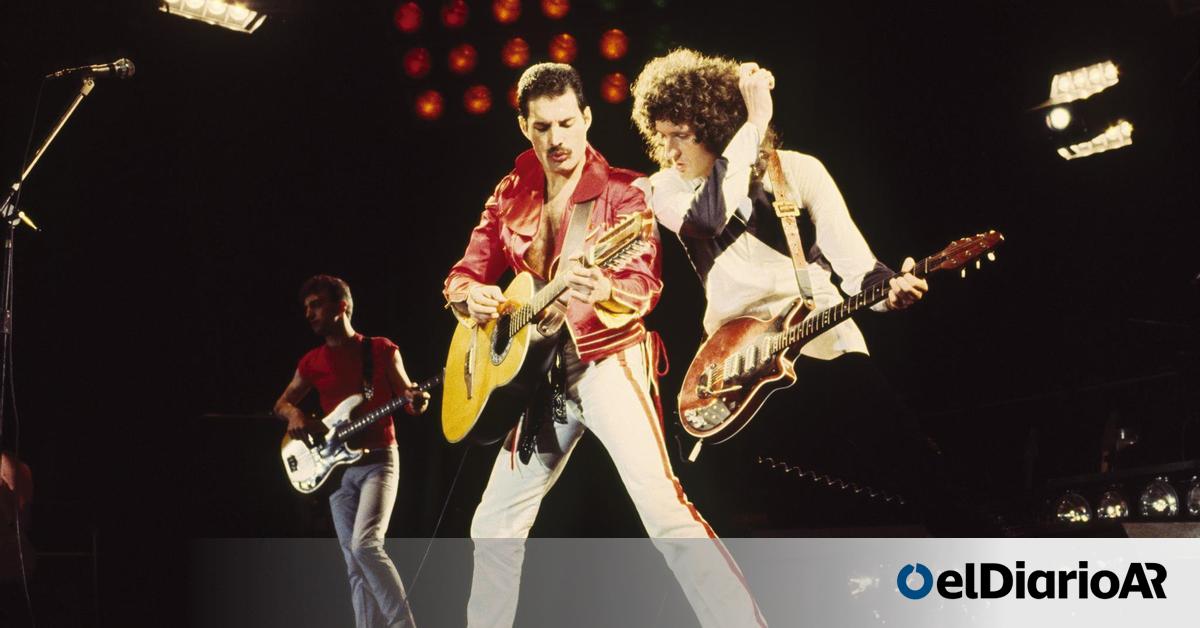He’s certainly one of the nation’s favourite music icons.
But in a recent survey, Freddie Mercury has always taken the top spot as the UK’s greatest gay icon too.
The Queen frontman was an imperious force of nature when it came to taking the stage. There was nobody quite like him.
Blending his enviable vocal range, natural flamboyance, and ability to control a crowd – no matter what size – in the palm of his hand, he ensured he’d go down in rock music history as one of the very best.
There’s a valid reason why Queen’s 20-minute set at Live Aid in 1985 has gone down as the greatest concert of all time.Though, despite his evident playfulness when it came to expressing himself, Freddie never publicly admitted he was gay.
The day before his tragic death on 24th November 1991 however, he revealed the AIDS diagnosis that sadly killed him, and people put two and two together when it came to his sexuality.
According to new research undertaken by Durex however, Freddie’s story has helped the nation learn more about LGBTQ+ relationships and history than sex education in school.Coinciding with Pride Month this July, Durex’s research data indicates that a lowly 6% of LGBTQ+ adults learn about LGBTQ+ relationships in school, as well as trans-specific issues.
Worryingly, one in four people received no sex education at all, increasing to over one in two people between the ages of 45 to 75.
39% of adults were taught about heterosexual relationships in school, whilst 61% said they had to learn about LGBTQ+ relationships on their own accord, and that music icons provided them with greater knowledge than sex education in school ever could.
This proves the importance of LGBTQ+ advocates in popular culture, especially for the communities whose identities aren’t widely promoted.
UK Black Pride co-founder and LGBTQ+ rights activist Lady Phyll said: “I am proud to be part of the lesbian gay bi-sexual queer and inters-x (LGBTQ+) community, but I wasn’t always.”
“We didn’t have those conversations at home or at school in terms of education – so I couldn’t explain what was happening to me. I stand here today in my true authentic self and that’s exactly what LGBTQ+ icons have done for the community.”
“Whilst they are crucial in understanding and addressing ongoing issues, it’s clear there is a gap in what our current sex education offers.”So, what constitutes an LGBTQ+ icon according to Durex’s research?
It’s someone who has empowered the community to embrace their sexuality and identity, or a figure that makes them feel more visible and proud to be LGBTQ+.
Said figure doesn’t necessarily have to be LGBTQ+ themselves, though they can be a vocal supporter of the community, help to change societal norms, or changing representation in mainstream media.
Whilst Freddie topped the list of LGBTQ+ icons, there were plenty of other beloved stars that made up the list.
Elton John, George Michael, David Bowie, Madonna, Cher, Dolly Parton, and even Lady Gaga featured among the most important icons alongside Freddie.
Durex category manager Charlotte McCrudden said: “We are proud to stand as an ally to the LGBTQ+ community at Pride in London and encourage everyone to feel empowered to be their true sexual self.”
“This Pride, we wanted to continue building on this and continue to champion inclusive sex education.”See the full list of the UK’s top LGBTQ+ icons and their vote percentage below:
Freddie Mercury – 38%
Elton John – 32%
Ru Paul – 22%
George Michael – 19%
Lady Gaga -18%
David Bowie – 12%
Madonna – 9%
Cher – 8%
Dolly Parton – 7%
Judy Garland/Dorothy from the Wizard of Oz – 7%
